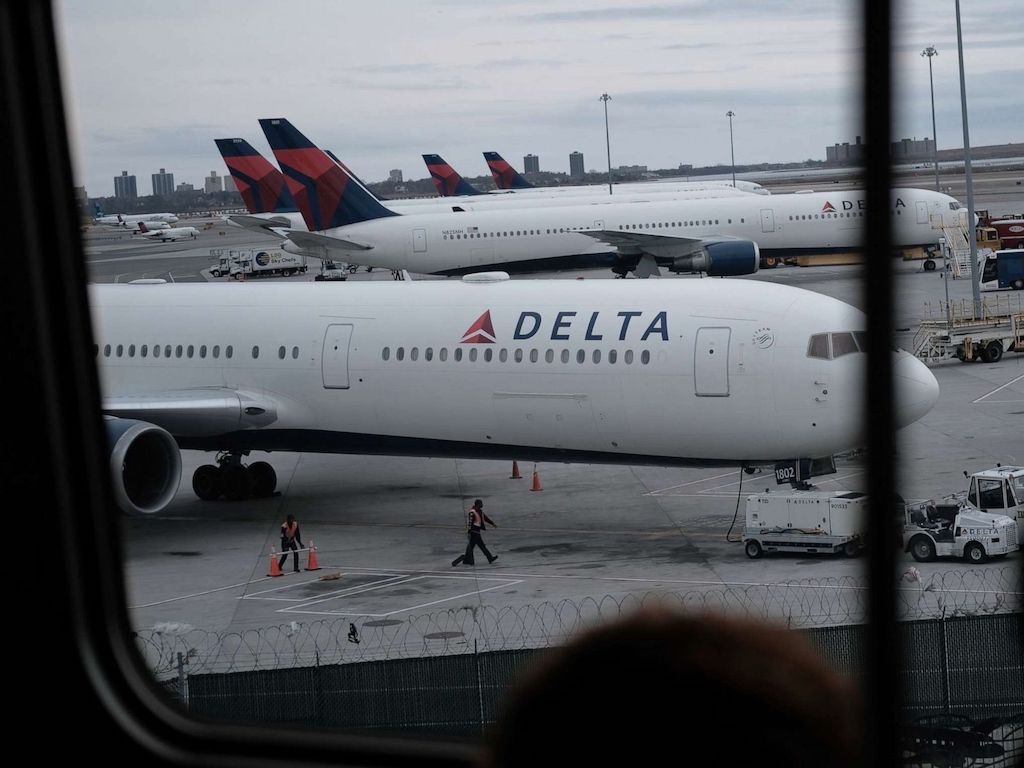3 Mins Read
US-based Delta Air Lines has just announced their plans to become “fully carbon neutral” starting from 1st March this year. Whilst Delta CEO Ed Bastian told CNBC the company will be committing at least US$1 billion over the next decade to reduce its environmental footprint, he admitted that it will continue to use jet fuel for the foreseeable future – giving little insight as to how exactly the zero-carbon plan will be achieved. It comes as more major corporations are ramping up their sustainability efforts as awareness of the climate crisis reaches new heights.
Delta Air Lines, a major airline and legacy carrier of the US, has committed to going “fully carbon neutral” next month. In the announcement revealed by Bastian in an interview with CNBC, the CEO said that it is a “big challenge” and a “big commitment” that the company is now making minimise its impact on the planet. Although pledging at least US$1 billion will be invested in clean technological investments for engines and carbon removal over the next 10 years, Bastian admitted that the company cannot stop using jet fuel – the largest source of aircraft emissions.
“We will continue to use jet fuel for as far as the eye can see. We’ll be investing in technologies to reduce the impact of jet fuel, but I don’t ever see a future where we’ll eliminate jet fuel from our footprint,” he said.
Bastian also added that the company will not rely on using carbon-offsetting programs, telling the news organisation that “carbon offsets are not the solution, we need to be investing in projects that make a difference.”
Although a few aviation projects have been successful without the use of jet fuel, technological advancements arguably have yet to reach a commercially viable stage for the airlines industry, which means that carriers will remain dependent on jet fuel. When jet fuel is burned, a massive amount of carbon dioxide is released into the atmosphere – the air travel industry alone accounts for 2% of global carbon emissions.
It therefore remains unclear as to how Delta plans to mitigate their carbon emissions while continuing to burn jet fuels, and without contributing to major offsetting plans.
Read: 10 ways to be a eco-friendly & responsible traveler
Other aviation companies have chosen other steps to reduce their environmental footprint. Air New Zealand, for instance, recently began using edible biscotti cups in collaboration with Auckland-based startup Twiice on select flights and lounges in a bid to reduce the waste generated by 600 billion non-biodegradable disposable coffee cups being tossed in landfills every year.
Eco-friendly action from airlines has ramped up due to increased global awareness about the climate crisis, and in particular, the carbon footprint associated with travelling by air. Last year, flight shaming or flygskam became a phenomenon – referring to the feeling of guilt caused by flying on airplanes. In order to ease the embarrassment, not only are people opting to travel by trains more than ever before, the choice to take action and to offset one’s footprint is also experiencing an uptick.
Empowered with the array of carbon offsetting options that have skyrocketed thanks to the “Greta Thunberg effect”, individuals have taken to purchase subscription plans from certified platforms such as Chooose and use mobile apps such as Carbon Capture to track and neutralise daily travel emissions.
Delta’s announcement came as a number of other major companies have pledged their commitments to sustainability. Most recently, big oil giant BP announced that they have plans to achieve “net-zero” emissions by 2050, but also admitted that they will continue to pump fossil fuels – the most destructive and lucrative of their operations.
Although both Delta and BP’s moves do reflect that some of the most polluting industries in the world are feeling the pressure, they arguably still fall far behind what is necessary given the severity of the climate crisis. The conversation has changed and companies are highlighting the issue more than ever before, but the world needs action now to avoid more damaging and irreversible climate threats.
Lead image courtesy of Spencer Platt / Getty Images.




